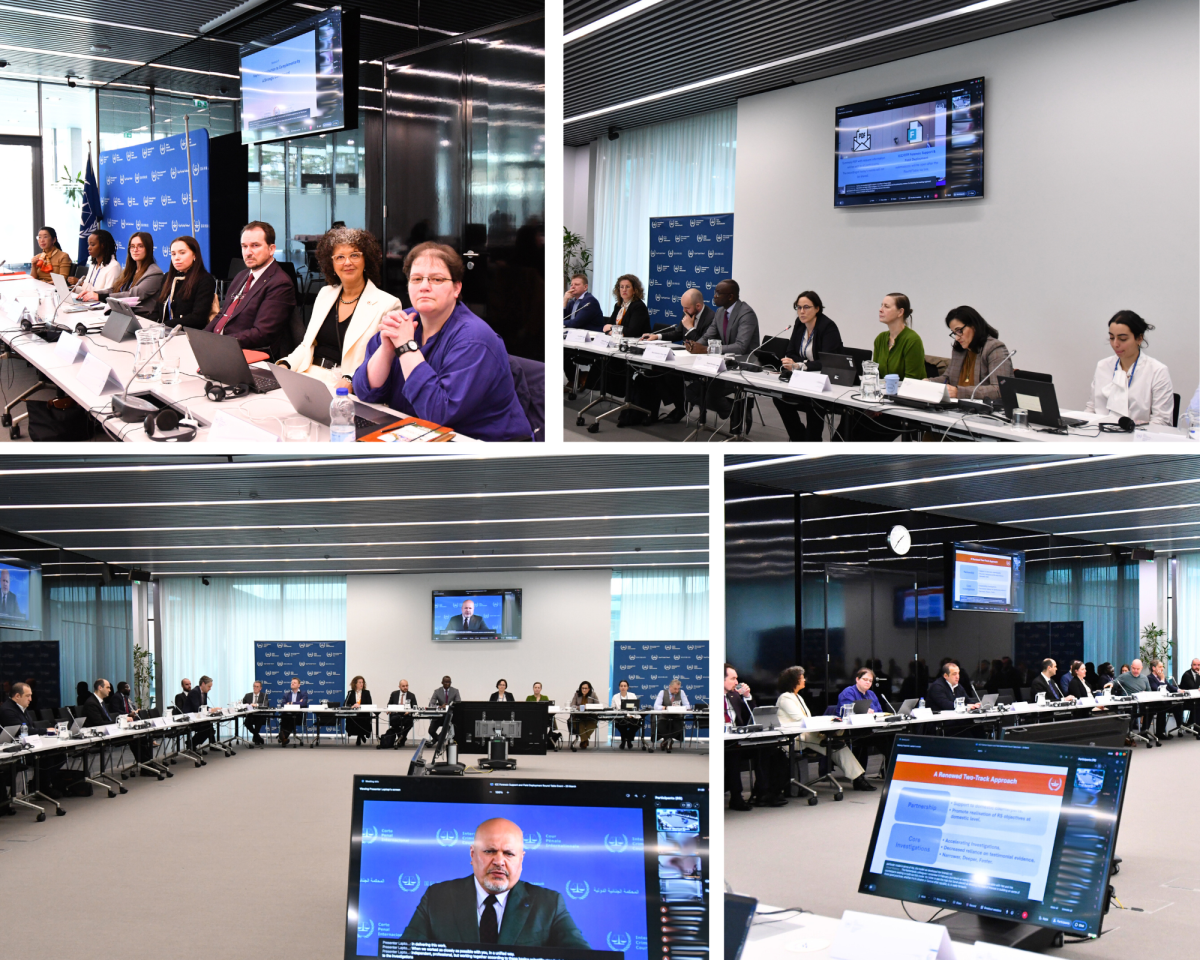ICC Office of the Prosecutor hosts roundtable event on forensic support and field deployment

The ICC Office of the Prosecutor (Office) was pleased to host today, 25 March 2024, a hybrid roundtable event on forensic support and field deployment. The roundtable is part of the Office’s efforts aimed at diversifying its expertise and creating a global forensic support network to assist its work across situations under the ICC’s jurisdiction.
The event gathered a diverse range of participants from more than 30 countries, working across the accountability landscape, including representatives from States, forensic institutions, academia, and civil society actors engaged in forensic activities.
The event focused on the collection, preservation and analysis of forensic and scientific evidence, and the benefits of coordinating efforts to strengthen the impact of investigative activities at the domestic and international levels.
Discussions built on the Office’s initiative to develop a model of forensic cooperation with States Parties and the activities undertaken in this regard to date, and enabled participants to foster a shared understanding of the opportunities and challenges, and to lay the groundwork for future collaboration with the Office in the field of forensic and scientific expertise.
The Prosecutor said in his opening remarks: “In the Office’s dynamic and challenging operating environments, we must be able to rely increasingly on forensic capacity, and the mobilization of external experts at short notice, drawing upon the scientific community to ensure the highest possible standards of practice. This collective work must deliver results across situations and draw on the global network of expertise in the Rome Statute community and beyond”.
By acting through an effective and coherent approach, the Office and other accountability partners can work together collectively to establish the truth and advance the Office’s independent investigations into crimes falling under the Rome Statute, as well as to provide support to relevant national authorities and ensure that forensic and scientific evidence collected at the domestic level meets the requisite international standards and can withstand judicial scrutiny.
With these objectives in mind, in the Ukraine situation, the Office has been able to deploy forensic experts, specialists, and support personnel under its auspices through cooperation with the authorities of the Netherlands, Belgium, Czech Republic, Denmark, France, and Switzerland. Also in the situation in the Central African Republic, the Office was able to conduct examination and forensic examination activities with experts from different countries, building on cooperation with the Argentine Forensic Anthropology Team and the Columbia Law School Human Rights Clinic. Additional situations in which the Office is seeking to extend its field-based forensic activities include the Democratic Republic of the Congo and Libya.
This model of forensic cooperation is a concrete example of the implementation of the core principle of complementarity at the heart of the Rome Statute, and reflects a reinvigorated approach to collaboration with national authorities by the Office outlined in its upcoming policy on Cooperation and Complementarity.
The Office strongly welcomes the continued support from States and other partners for its future forensic activities, as discussed during the roundtable event.